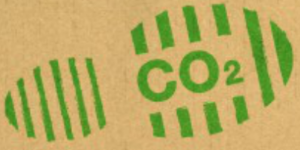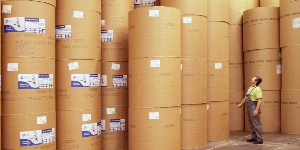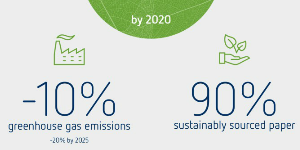Bertelsmann Reduces Carbon Footprint in 2016
 As part of our Igloo Climate Change series, we are presenting highlights from Bertelsmann’s recently released Carbon Footprint 2016 Report that provides information on the development of relevant environmental indicators and climate emissions across our majority shareholder and its divisions.
As part of our Igloo Climate Change series, we are presenting highlights from Bertelsmann’s recently released Carbon Footprint 2016 Report that provides information on the development of relevant environmental indicators and climate emissions across our majority shareholder and its divisions.
In 2016, the Bertelsmann Carbon Footprint was Reduced by One Percent
This reduction corresponds to a decline of 5,300 tons, compared to the previous year. Bertelsmann’s total footprint represents approximately 572,300 tons of CO2 equivalents (CO2eq). –. CO2eq is a measure of the emission of different greenhouse gases, weighted according to their impact on the climate.
About half of the emissions are produced directly at Bertelsmann companies worldwide through the generation of heat and electricity and through the fuel consumed by company cars. The other half of the emissions are produced indirectly by utility companies or landlords, for the generation of electricity and district heating. Apart from the Bertelsmann Printing Group, the biggest contributor to other indirect emissions are Penguin Random House’s publishing businesses (20%) and Gruner + Jahr (12%).
12% Increase in Share of Paper from Sustainable Sources
 At Bertelsmann’s printing and publishing businesses, paper will remain the most important natural resource for the foreseeable future. As part of an ongoing effort to protect the environment and climate, it is all the more important than ever that paper used comes from sustainable forestry or recycling. In 2016, the proportion of paper Bertelsmann companies purchased from sustainable sources rose significantly from 74 percent to 86 percent. Meanwhile, overall paper consumption was down slightly year-on-year by 10,000 tons (roughly one percent), to 1.85 million tons. Bertelsmann’s annual paper consumption corresponds to a column of trucks loaded with rolls of paper that stretches more than 470 miles – roughly the distance from Hamburg to Munich. To complement its Paper Policy, Bertelsmann strives to increase the share of recycled paper and paper from certified sustainable forestry to more than 90 percent by 2020. Among Penguin Random House’s 2020 Social Responsibility Commitments, our company will source 100 percent of the paper we use worldwide from a certified forest-management standard such as FSC, SFI, and/or PEFC.
At Bertelsmann’s printing and publishing businesses, paper will remain the most important natural resource for the foreseeable future. As part of an ongoing effort to protect the environment and climate, it is all the more important than ever that paper used comes from sustainable forestry or recycling. In 2016, the proportion of paper Bertelsmann companies purchased from sustainable sources rose significantly from 74 percent to 86 percent. Meanwhile, overall paper consumption was down slightly year-on-year by 10,000 tons (roughly one percent), to 1.85 million tons. Bertelsmann’s annual paper consumption corresponds to a column of trucks loaded with rolls of paper that stretches more than 470 miles – roughly the distance from Hamburg to Munich. To complement its Paper Policy, Bertelsmann strives to increase the share of recycled paper and paper from certified sustainable forestry to more than 90 percent by 2020. Among Penguin Random House’s 2020 Social Responsibility Commitments, our company will source 100 percent of the paper we use worldwide from a certified forest-management standard such as FSC, SFI, and/or PEFC.
“Be Green” Efforts Continue to Have Positive Impact on Resource Conservation and Waste Prevention
 A total of 380 Bertelsmann companies at nearly 400 locations across all divisions around the world participated in the company’s annual collection of environmental data. Numerous committed colleagues volunteered to support the recording of key figures on energy and paper consumption, water and waste. The worldwide environmental data collection is coordinated by “be green” experts at the divisions. At the Group level, the environmental data from the companies and sites are combined and the sum of all greenhouse gas emissions is determined. The results of the Carbon Footprint report not only create transparency about impacts on the environment and climate, as well as on Bertelsmann’s environmental performance, but also enables the management to derive measures for improvement.
A total of 380 Bertelsmann companies at nearly 400 locations across all divisions around the world participated in the company’s annual collection of environmental data. Numerous committed colleagues volunteered to support the recording of key figures on energy and paper consumption, water and waste. The worldwide environmental data collection is coordinated by “be green” experts at the divisions. At the Group level, the environmental data from the companies and sites are combined and the sum of all greenhouse gas emissions is determined. The results of the Carbon Footprint report not only create transparency about impacts on the environment and climate, as well as on Bertelsmann’s environmental performance, but also enables the management to derive measures for improvement.
The sharing of knowledge and experiences in the Bertelsmann “be green” network, and cooperation in energy efficiency projects, continue to help reduce energy consumption and emissions, costs, and effort.
Even in an increasingly digital media landscape, printed books, magazines, brochures and leaflets will continue to have their place, which is why, going forward, resource conservation and waste prevention will continue to play a major role at Bertelsmann across the paper value chain. To safeguard forests, which are valuable for climate protection and biodiversity, Bertelsmann advocates responsible paper procurement. In their role as print service providers and paper buyers, Bertelsmann companies offer their customers an extensive range of sustainably certified and carbonneutral print products.
To read the complete Bertelsmann Carbon Footprint 2016 Report, click here.
